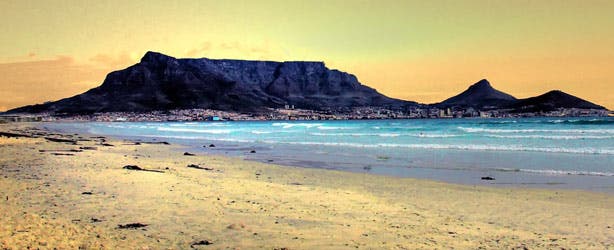Yes, there’s wine, but also art, yoga, cooking classes & kudu macarons
Kruger Park launches four-day backpack & hiking adventure trail
The Kruger National Park launched a 4-day, 3-night Back Pack Trail that follows the Olifants River through the heart of the park.
The Kruger National Park (KNP) launched a four-day, three-night Back Pack Trail that follows the Olifants River through the heart of South Africa's largest National Park.
"This new amazing product aims to show the natural splendour of the KNP in a new and quite extraordinary way," said Executive Director of the KNP, Dr Bandile Mkhize at the launch, "which will take fit and healthy members of the public closer to the magical wonders of the beautiful Olifants River, which up until now, has been the exclusive domain of KNP rangers and scientists."
Dr Mkhize explained that the trail is the latest in a series of adventure tourism products like the Lebombo Eco Trail, the Mountain Bike Trail and the Adventure Trails for 4x4 vehicles that allow visitors to see more of the KNP whilst limiting impacts on the environment.
Hikers meet at Olifants Camp Reception at 08:00 on the first day of the trail for a thorough briefing and equipment check before heading out to the trail itself by open safari vehicle. Private vehicles are left at Olifants Main Camp and it is advisable that accommodation at Olifants and/or Letaba main camps is booked prior to the trail and after completion to give adequate time to arrive and to rest afterwards.
Two armed guides - both hiking specialists - accompany eight hikers who have to be between 16 and 65 years old to qualify for the trail. The trail guides stay on track thanks to portable global positioning system (GPS) units donated by the SANParks Honorary Rangers' Counter Poaching Unit.
Hikers are expected to carry with them all their necessities, including food, a tent, sleeping bag and various other equipment that they will need during the four-day, three-night experience.
For peace of mind, the guides can communicate with nearby camps and ranger stations thanks to state of the art satellite telephones. Dr Simon King from The Wilderness Emergency Programme who also helped establish the medical emergency plan for the trail sponsored these handsets.
Hikers will be responsible for carrying and preparing their own food and are advised to bring lightweight gas stoves and dehydrated food. Water purification tablets are also a necessity, as are eating utensils and enough water bottles.
Although the trail only covers 42 kilometres along the upper section of the Olifants River, upstream of the high-water bridge, it is characterised by dense thickets, uneven terrain, hills and frequent gullies and hikers will be required to produce medical certificates to prove that they are fit and in good health before they begin the trail.
But this does not diminish the natural beauty that hikers will get to see as the trail is characterised by awesome riverine scenery with age-old Matumi, Tree Fuschia, Sycamore Fig, Natal Mahogany, Mopani, Leadwood and Tamboti trees do provide some cover against the harsh Lowveld sun.
However, hats, a sufficient supply of sunblock and insect repellent are still necessities, as are other vital items such as toilet paper, matches, plastic bags (for refuse and in case of rain) and a torch (with spare batteries). Hikers are also required to bring their own medical kits with their personal medical requirements and a blister kit is highly recommended. Naturally, comfortable hiking shoes or boots are a necessity, as are spare laces and sufficient clothing, including socks.
During the booking process, hikers will be provided with more detailed information about the trail itself and an equipment checklist. Before the trail, there will be a compulsory gear check and hikers might be requested to leave non-essential items at Olifants Camp if the weight of their backpacks is too heavy.
The trail costs R9 600 for eight people.
Source: Sanparks / March 2006 (incl picture)
Subscribe to our free newsletter for more news on South Africa's national parks, accommodation, game lodges and game drives.









